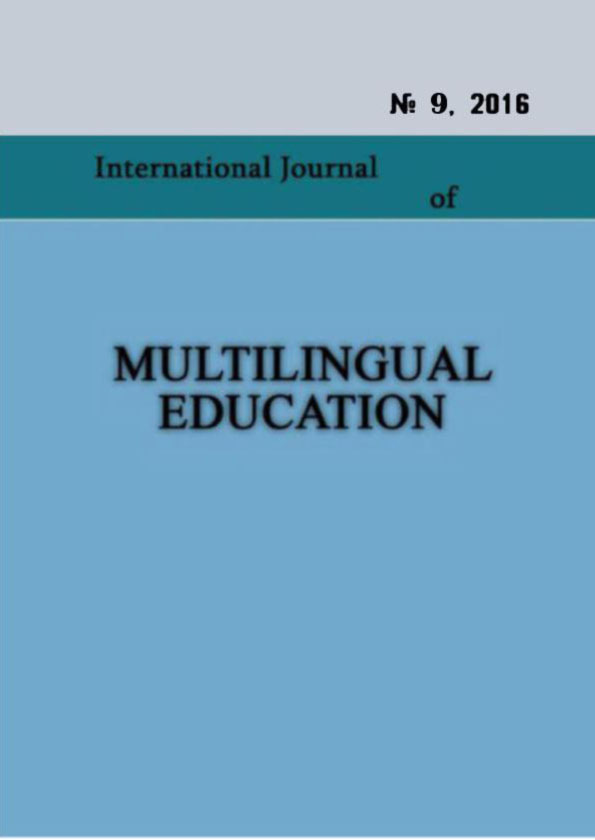Comparative analysis of Ukrainian and English neologisms in the context of political discourse
Keywords:
political discourse, political terms, political neologisms, word formation.Abstract
The article considers the features of formation of neologisms in the modern Ukrainian and English political discourses. We set the following task: to analyze the actual ways of word formation in the modern political discourse. Lexical peculiar features of political discourses of the Ukraine, the Great Britain an the USA are scrutinized. Language is one of those human activity, which one of the first reflects changes in social, political, economic and cultural and other aspects of human activity. Living language develops very rapidly, it is under the influence of internal and external factors, it adapts to the constant changes in social, cultural and scientific life. Each changes in the society generates new words and terms, i.e.the creation of new words in the language is carried out as a reflection in the language of social needs to express new concepts. New words in the language are reflection of an objective reality. Neoplasms in a given historical period are defined by both internally speech and externally speech factors that play a key role in the study of certain linguistic changes. In understanding the neology as lexical renovation of the national language by borrowing new formations and new meanings, it should be noted the importance of this process for the phenomenon of political discourse
because the native speaker’s consciousness is formed by means of the language. Therefore, changing the lexical system, conventional political sender reconstructs the cognitive recipient field, manipulates his or her consciousness, and consequently directs his or her political actions. In understanding the neology as lexical renovation of the national language by borrowing new formations and new
meanings, it should be noted the importance of this process for the phenomenon of politically discourse because the native speaker’s consciousness is formed by means of the language. Therefore, changing the lexical system, conventional political sender reconstructs the cognitive recipient field, manipulates his or her consciousness, and consequently directs his or her political actions.
References
Arnold, 2012 - Арнольд И.В. Лексикология современного английского языка / И.В. Арнольд.
Учебное пособие / – 2-е изд., перераб. – М. : ФЛИНТА : Наука, 2012. 376с.
Galperin, 2014 - Гальперин И.Р. Стилистика английского языка / И.Р. Гальперин. –М.: Либроком, 2014, – 336с.
Gladka, 2009 - Гладка В.А. Поняття “ неологізм” у світлі сучасних лінгвістичних парадигм / В.А. Гладка // Наукові записки [Національного університету “Острозька академія”] Сер.: Філологічна. – 2009. – № 11. – С. 170-177.
Dzyubina, 2014 - Дзюбіна О.І. Скорочення як спосіб утворення неологізмів в сучасній
англійській мові (на прикладі англомовних інтернет-видань та форумів в молодіжних соціальних мережах) / О.І. Дзюбіна // Вісник Житомирського державного університету. Філологічні науки. – № 3 (75). 2014; С. 309-312.
Koloiz, 2009 - Колоїз, 2009 - Ж. В. Українська неологія: здобутки та перспективи / Ж.В. Колоїз // Наукові праці [Чорноморського державного університету імені Петра Могили] Сер.: Філологія. Мовознавство. 2009; Т. 105, № 92. –С.57-62.
Minyar-Beloruchev, 2012 - Миньяр-Белоручев А.П. К проблеме создания политических неологизмов / А.П. Миньяр-Белоручев // Вестник ЮУрГУ, 2012. – № 25. С.32-37
Naumova, 2008 - Наумова І.О. VERBATIM 2008/2: моногр. / І.О. Наумова – Харків: ХНАМГ, 2008. – 128 с.
Rozental, 1985 - Розенталь Д.Э. Словарь-справочник лингвистических терминов / Д Э. Розенталь, М.А. Теленкова. – М.: Просвещение, 1985. – 1985. –399с.
Kristal, 2003 - Crystal D. English as a Global Language (2nd edition) / D. Crystal. – Cambridge: Cambridge University Press, 2003. – 212 p.
Newmark, 1992 - Newmark P. About Translation. Multilingual Matters, 1992, 184p.
The Oxford Dictionary of American Usage and Style. Bryan A. Garner. Oxford University Press, 2000.
Downloads
Published
How to Cite
Issue
Section
License
Copyright (c) 2017 Natalia Konopelkina

This work is licensed under a Creative Commons Attribution-NonCommercial 4.0 International License.
Copyright (c) - Authors who publish with this journal agree to the following terms: Authors retain copyright and grant the journal the right of first publication with the work simultaneously licensed under a Creative Commons Attribution-Noncommercial 4.0 International License, which allows others to share the work with an acknowledgement of the work's authorship and initial publication in this journal. Authors are permitted and encouraged to post their work online (e.g., in institutional repositories or on their personal website) prior to and during the submission process, as it can lead to productive exchanges, as well as earlier and greater citation of published work (see The Effect of Open Access). Authors may enter into separate, additional contractual arrangements for the non-exclusive distribution of the journal's published version of the work (e.g., post it to a repository or publish it in a book), with an acknowledgement of its initial publication in this journal.

